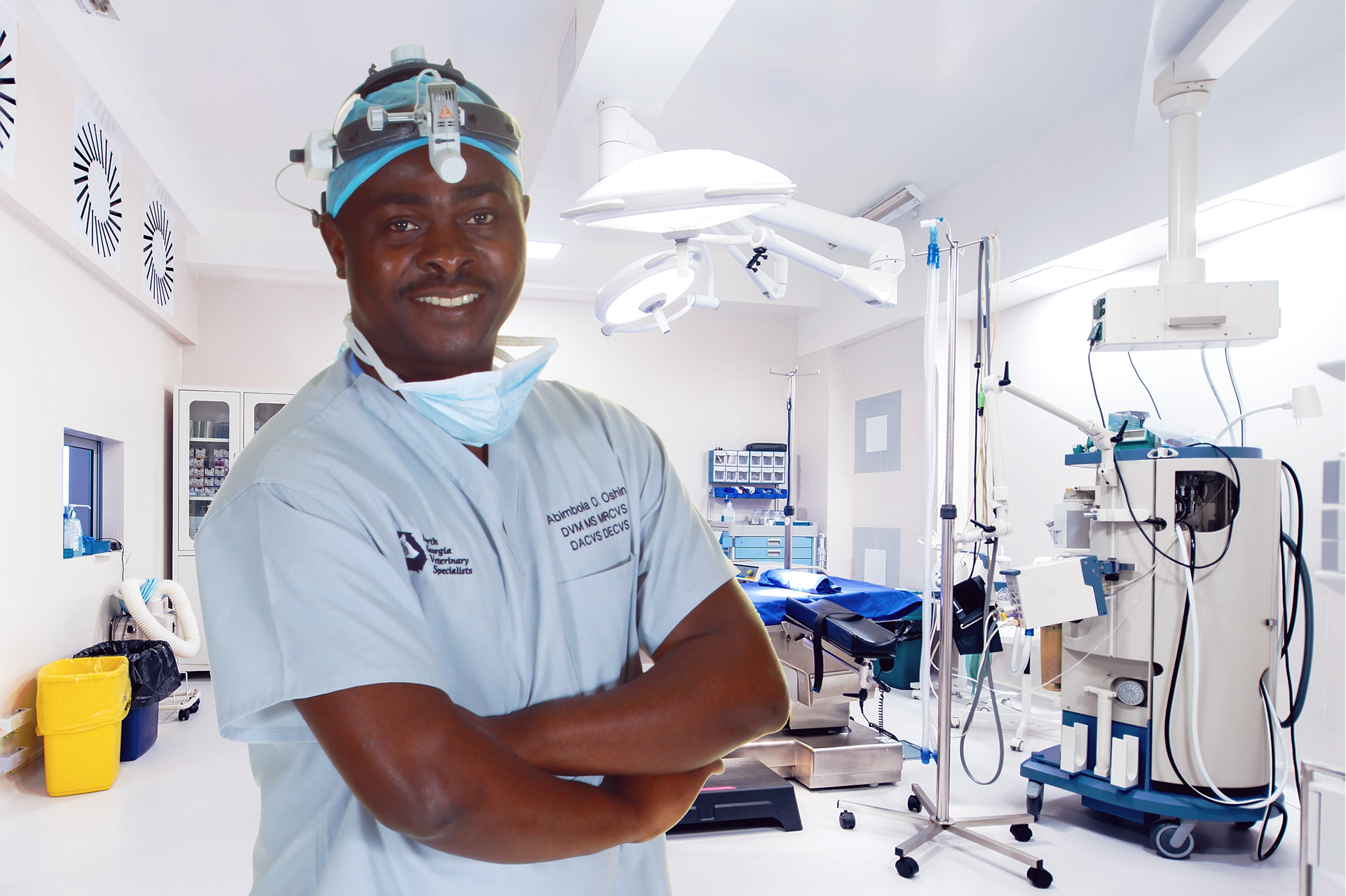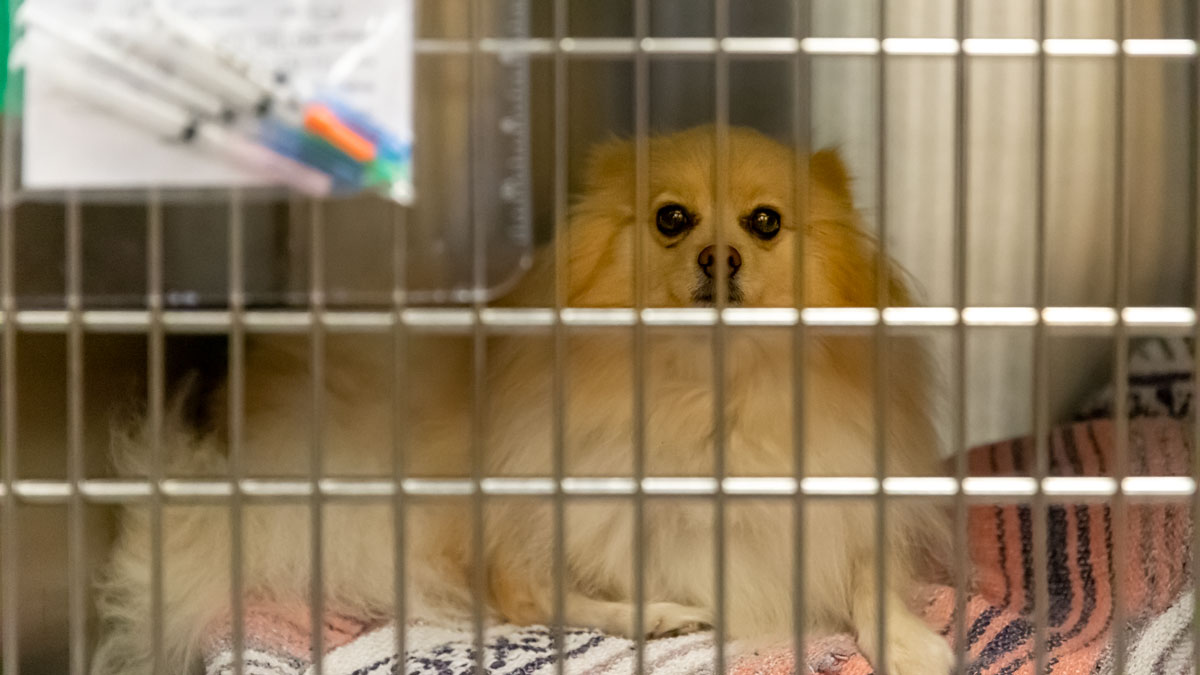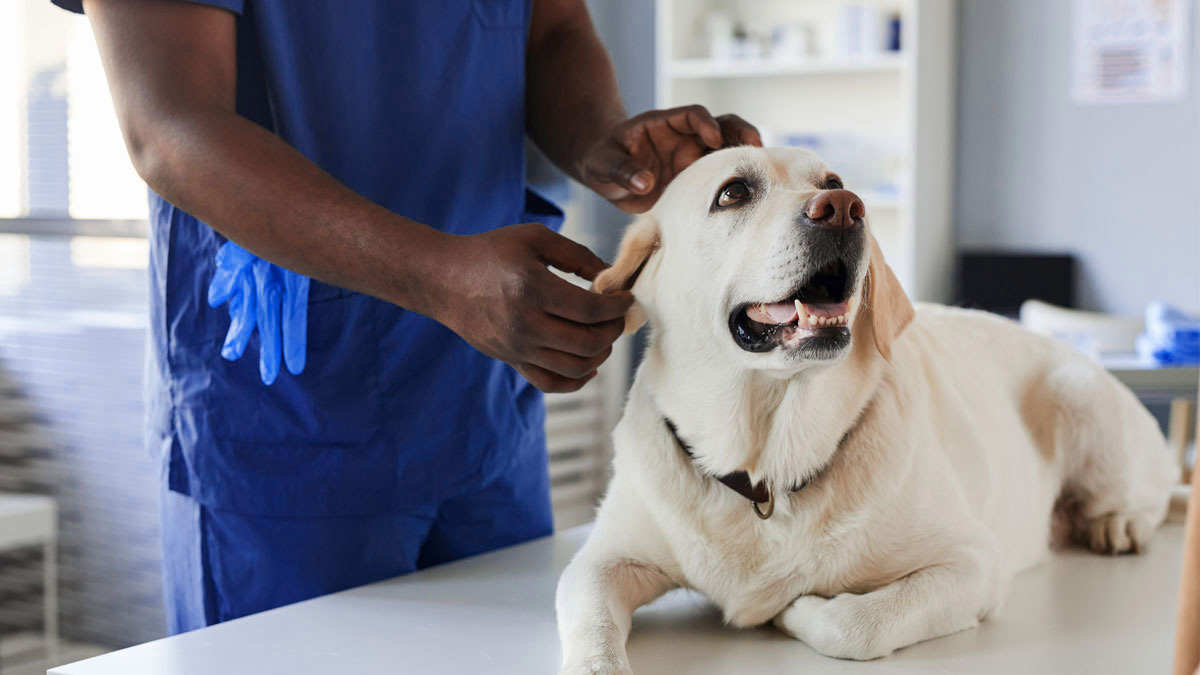Ensuring optimal postoperative care for your pet after surgery is crucial for a smooth recovery and rapid return to health. No matter the procedure—be it routine spaying or neutering, dental work, or major surgery—effective postoperative care for your pet can greatly enhance recovery and overall well-being. In this blog post, we’ll walk you through ten essential tips to provide the best postoperative care for your pet following surgery.
Prepare Your Pet's Home for postoperative Care
Preparing your pet’s home for its postoperative care is key to their recovery. It is recommended that their designated space for recovery be free from any items that can pose a risk. Providing soft bedding, at least one-inch thickness for every ten pounds of body weight, restricting activity to prevent injury if they are unsteady, removing or restricting access to furniture or stairs they might be tempted to jump on or climb, and removing anything they may be tempted to chew on or ingest, are all necessary preparations. Additionally, keep your pet’s food and water close by to ensure they stay hydrated with plenty of fuel for energy. With careful preparation of your pet’s home after surgery, you can ensure a smooth and healthy recovery for the entire family!
Comprehending and Adhering to Postoperative Instructions
Adherence to postoperative care instructions for your pet can be the difference between a swift recovery and complications. Instructions for postoperative care of your pet often include crucial information such as home care, medications to be administered, expected signs of recovery (such as appetite and energy levels), warning signs that mean you should contact your vet right away, details related to restrictions during the healing time such as limiting activities like jumping or running, wound cleaning guidelines and specific timelines related to after-surgery checkups. It is up to you to ensure you fully understand the information given by your veterinarian, so you can provide proper after-surgery care at home. By following postoperative instructions provided by your vet closely and attentively, you can help ensure a speedy and successful recovery for your beloved pet.
Pain Management: A Crucial Element of Postoperative Care for Your Pet
Postoperative pain management is a critical aspect of at-home pet care after surgery. If your pet is in pain, it can lead to additional stress. To help ensure comfort and minimize stress levels, having a comprehensive treatment plan for pain management and understanding how to monitor your pet’s pain levels and recovery progress is the key. Your veterinarian would have provided instructions, such as activity restrictions, use of cold packs, supplements, and various veterinary-prescribed medications to provide pain relief and relieve anxiety. By ensuring that your beloved pet receives proper postoperative care and pain management, you will go a long way in helping them to recover better from their surgical procedure.
Observing Your Pet's Eating Habits, Appetite, and Weight Changes
Monitoring eating habits, appetite, and weight changes is an essential element of your pet’s postoperative care. Paying attention to any changes in your pet’s diet or eating behavior can provide you with valuable insight into their recovery progress. Not only will this give you the necessary information you need to make sure your pet is staying healthy and fit, but it also serves as an early warning system when there are underlying medical issues that need immediate attention. Make sure to keep records of your pet’s postoperative meals, food, and water consumption levels, as well as their activity levels throughout this period – such data will be useful if you need further advice from your vet.
Regulating Activity Levels and Exercise Restrictions
Regulating activity levels and enforcing exercise restrictions are crucial for your pet’s quick recovery. Remember that going too hard too soon can result in setbacks and longer recovery times. The right combination of rest, limited activity, and monitored exercise will keep your pet healthy while maintaining its safety. Different pets need different levels of post-surgery care, and therefore some exercises may not be suitable for all animals. So, it is always important to find out which activities are safe for your own pet before starting any form of exercise regimen. Keeping this in mind will ensure that your pet gets the best possible care after surgery and can help you to avoid any extra stress or setbacks on their road to recovery. With patience and consistency, you can help your pet heal quickly, responsibly, and safely.
Postoperative Incision Site Management and Cleaning
Postoperative care for your pet includes careful monitoring and cleaning of incision sites to prevent infection. This is why proper protection of the incision site and cleaning techniques, when directed, are essential in keeping the wound area healthy and ensuring your pet a safe and comfortable recovery. You should consult your veterinarian to develop an appropriate plan for managing your pet’s incision sites. Most contamination that leads to infection usually comes from attempts by your pet to clean its own incision. Your veterinarian will have bandaged the wound and/or provided you with an Elizabethan collar or other means to prevent this source of contamination. It is essential to follow your veterinarian’s instructions until the wound is completely healed. Should the incision need cleaning, guidelines for wiping and gently cleaning the wound site in a way that does not disturb the healing process should be obtained from your veterinarian. Commitment to this protocol will help promote effective postoperative healing and may even help diminish scarring at the incision site. Ensure you understand all the details regarding after-surgery incision care for your pet to ensure they receive quality care at home.
Identifying Potential Postoperative Complications in Pets
Being aware of potential postoperative complications is part of comprehensive care for your pet after surgery so you can identify them and be prepared to seek immediate care for your pet in the event of a complication after surgery. Postoperative care is as important as the surgical steps and involves monitoring your pet for complications. Ignoring potential complications can make them more serious, placing your pet’s life at risk, prolonging the healing process, or jeopardizing the outcome of surgery.
Providing Social Support to Ease Your Pet's Anxiety during Recovery
Recovery can be a stressful time for your pet, making social support an essential part of postoperative care. Postoperative recovery can be an anxious time, with stressful changes to daily routines and healing that take unexpected turns. Studies show that social support from family, friends, or even from the community can often reduce anxiety levels during these times of transition. After-surgery care for pets can be especially difficult as animals completely rely on their owners for all aspects of their recovery. A well-managed pet care plan should offer comfort and companionship while fulfilling other physical needs like daily walks or exercise plans that may help speed the recovery process. Additionally, having trusted people around your pet during the recovery period not only gives them emotional support but also practical assistance in everyday activities. When it comes to helping your pet recover quickly, and without additional stressors, social support truly provides an invaluable service – both emotional and practical – that cannot be replaced with any amount of medication or clinical therapy alone.
Scheduling Necessary Vet Visits for Postoperative Checkups
Regular veterinary checkups are an important part of your pet’s postoperative care. These help to monitor progress, track changes, and ensure that the healing and recovery process continues uninterrupted and that your pet receives the best after-surgery care possible. They allow your veterinarian to monitor the healing progress and ensure your pet is progressing as expected. After all, no one knows better than your veterinarian what it takes to provide your pet with the best home pet care possible when recovering from surgery. Keeping these appointments will help ensure that your pet’s healing is progressing as expected.
Patience is Key in Postoperative Care for Your Pet
Patience is crucial when it comes to postoperative care for your pet. It is important to remember that your pet’s full recovery will take time and can often depend on the type of procedure they had. Postoperative instructions should always be followed closely to ensure that your pet has the best chance for a successful recovery. Keeping them confined in a safe area, providing proper nutrition and hydration as prescribed, and keeping up with their medication regimen are all important aspects of home pet care after surgery. When you have patience, understanding, dedication, and follow through with recommended care instructions, you can be sure you are giving your furry family member the best shot at a full recovery.
The best way to ensure that your pet successfully recovers from their procedure is by following post-surgery instructions closely and providing them with the necessary nutrition, hydration, medication, social support, and veterinary visits they need. With enough dedication and understanding of how postoperative care works, you can provide your furry family members the comfort and companionship they require during this time of transition while also giving them the best chance at a full recovery. So follow all these tips for postoperative care for your pets carefully when caring for your pet to promote a speedy healing process!





